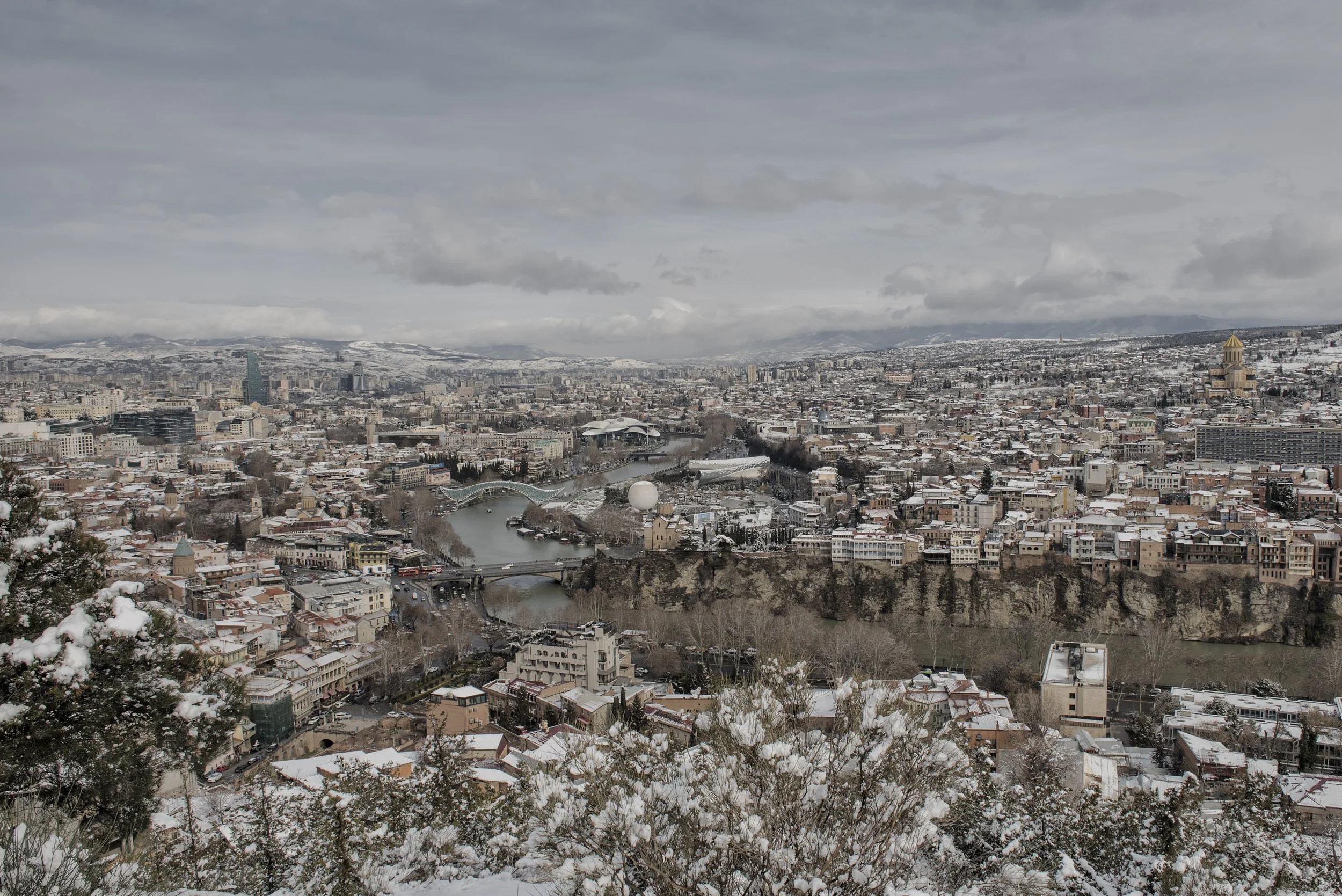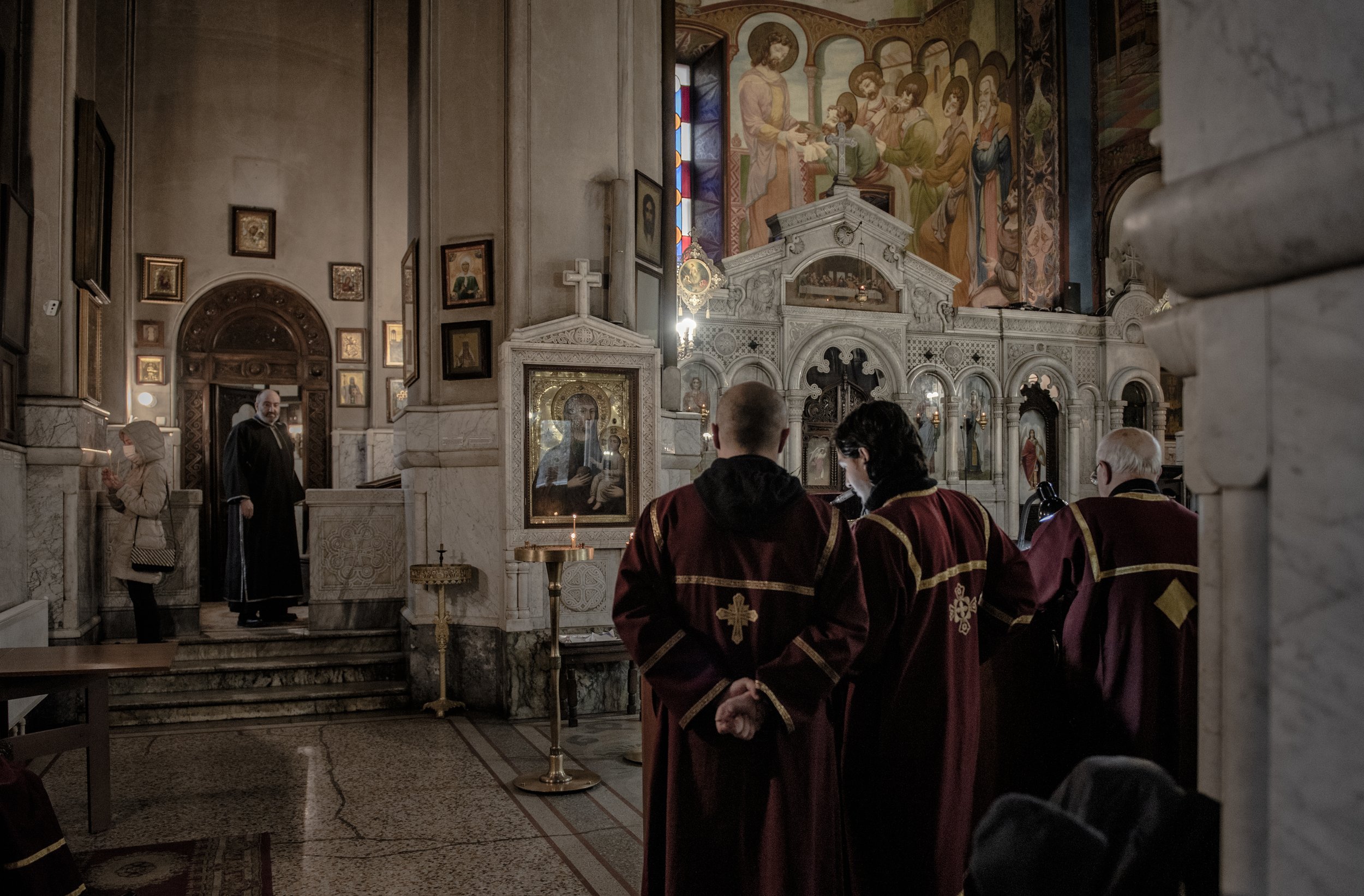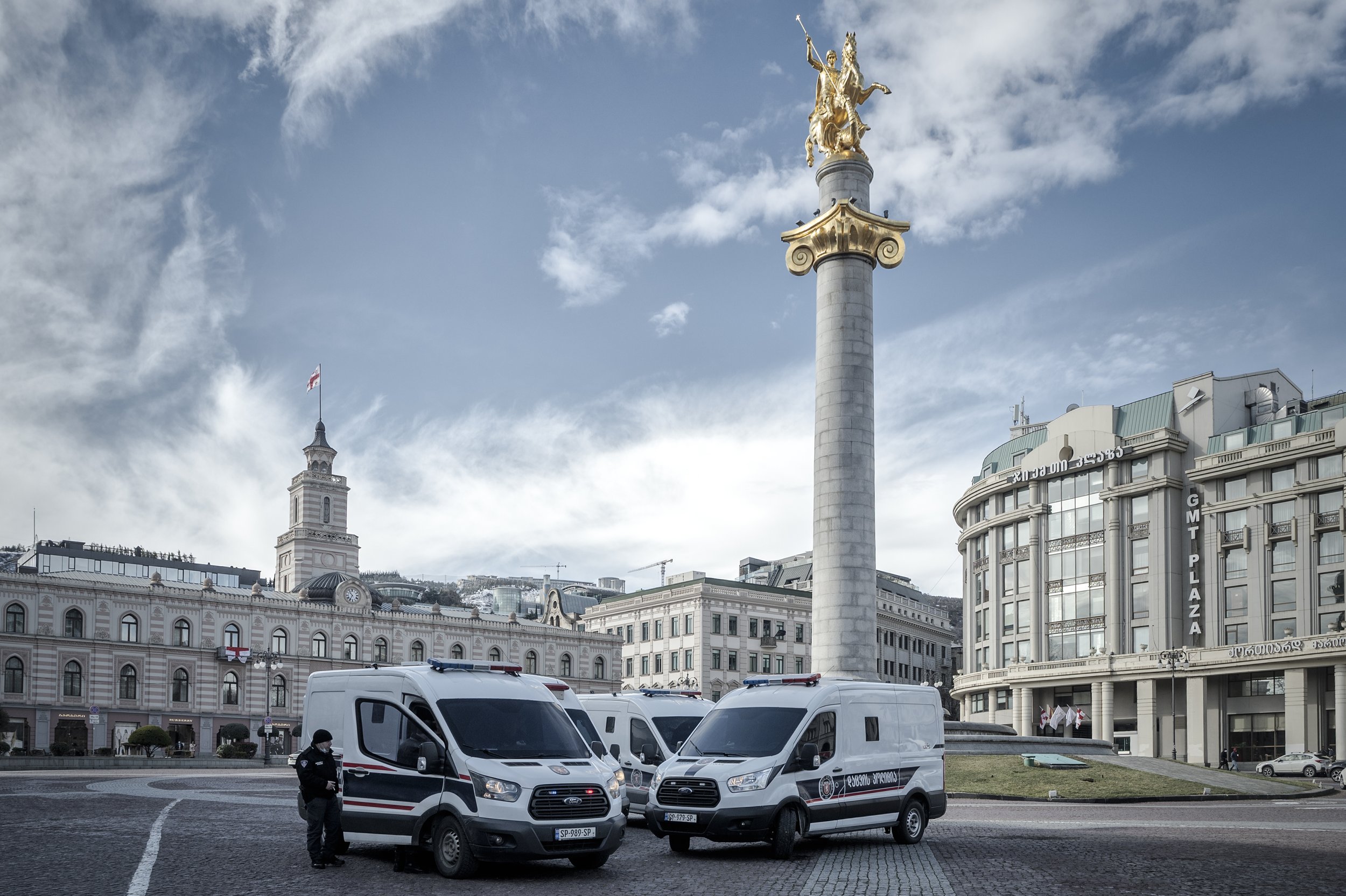Ukraine Reminds Georgia of Its Own War With Russia. That Creates a Dilemma..
Russia invaded Georgia in 2008. To many Georgians, that means the country should stand unequivocally with Ukraine. But the government is more cautious.
Text By Patrick Kingsley, Photographs by Laetitia Vançon.

A small, mountainous country of 3.7 million people at the southeastern extreme of the European continent, Georgia is perhaps running the narrowest gantlet. Russia invaded parts of Georgia 14 years ago, and Russian troops still protect South Ossetia and Abkhazia, two secessionist statelets that broke away from Georgia during the 1990s and then expanded in 2008. That has put Russia in de facto control of roughly a fifth of Georgian territory.
To the Georgian government, this precarious dynamic makes it unwise to speak out too strongly against Russia, lest Russia turn on Georgia next.
Along Russia’s borders, in post-Soviet countries like Georgia that remain caught between Russian and Western influence, the Russian invasion of Ukraine has presented governments with a strategic dilemma.
Apart from Belarus, none have backed the Russian offensive. But nor have they strongly opposed it — fearful of upsetting a dominant neighbor that is a major source of trade and remittances, a guarantor of some countries’ security and a potential aggressor to others.
Days after the invasion began, Georgia submitted a rushed application for membership in the European Union — a largely symbolic indication of its pro-Western orientation, since full membership is years away. The government sent humanitarian aid to Ukraine, admitted more than 5,000 Ukrainian refugees and voted in favor of a United Nations resolution condemning the invasion of Ukraine.
Georgia has also admitted more than 30,000 Russians since the war started, of whom 12,000 have remained there, with Tbilisi joining Istanbul as one of the primary destinations for the new wave of young Russian exiles.




















